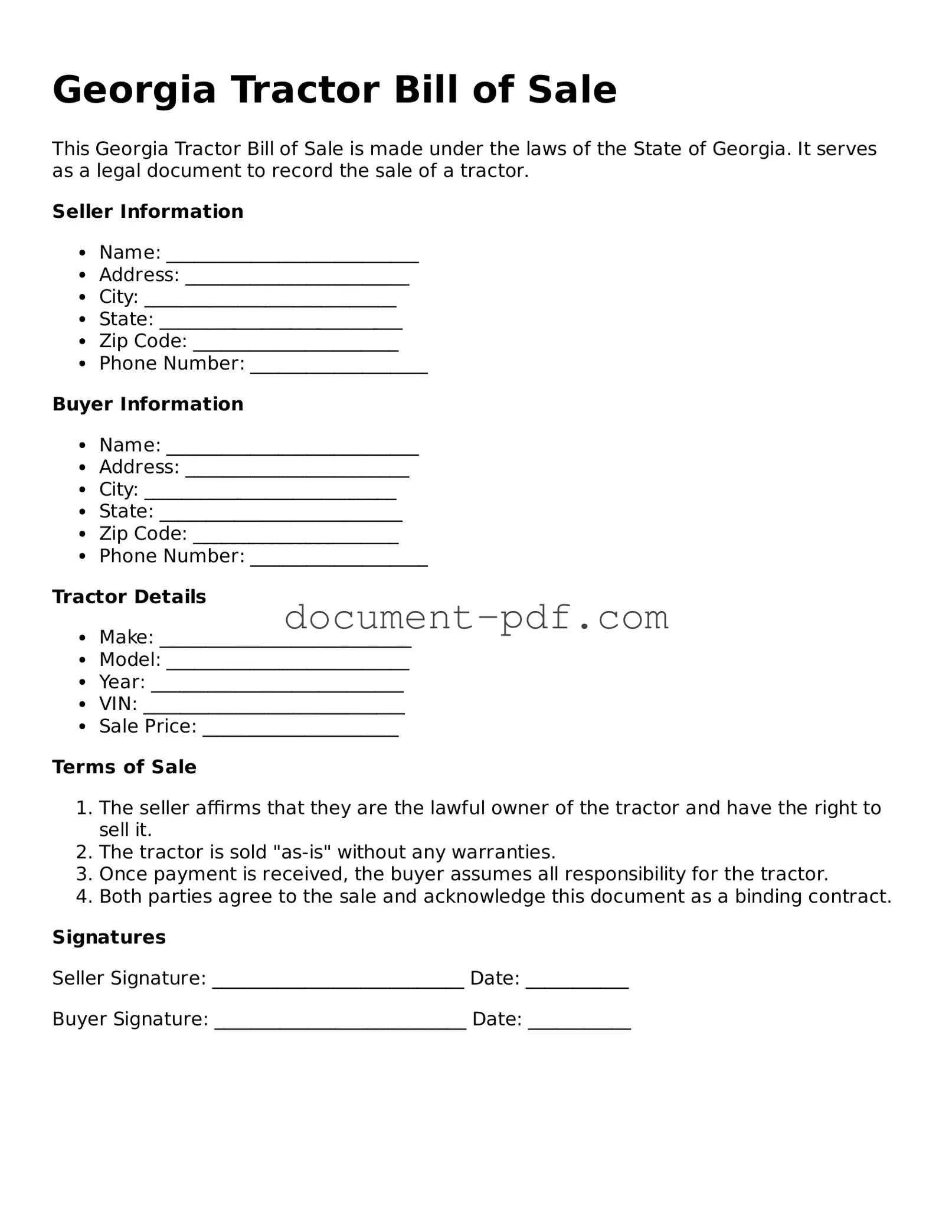Attorney-Verified Georgia Tractor Bill of Sale Template
The Georgia Tractor Bill of Sale form is a legal document that records the sale and transfer of ownership of a tractor in Georgia. This form includes essential details such as the buyer's and seller's information, the tractor's specifications, and the sale price. Completing this form is crucial for both parties to ensure a smooth transaction and to establish proof of ownership.
Ready to fill out the form? Click the button below to get started!
Access Tractor Bill of Sale Editor Here

Attorney-Verified Georgia Tractor Bill of Sale Template
Access Tractor Bill of Sale Editor Here
Finish the form without slowing down
Edit your Tractor Bill of Sale online and download the finished file.
Access Tractor Bill of Sale Editor Here
or
Click for PDF Form
